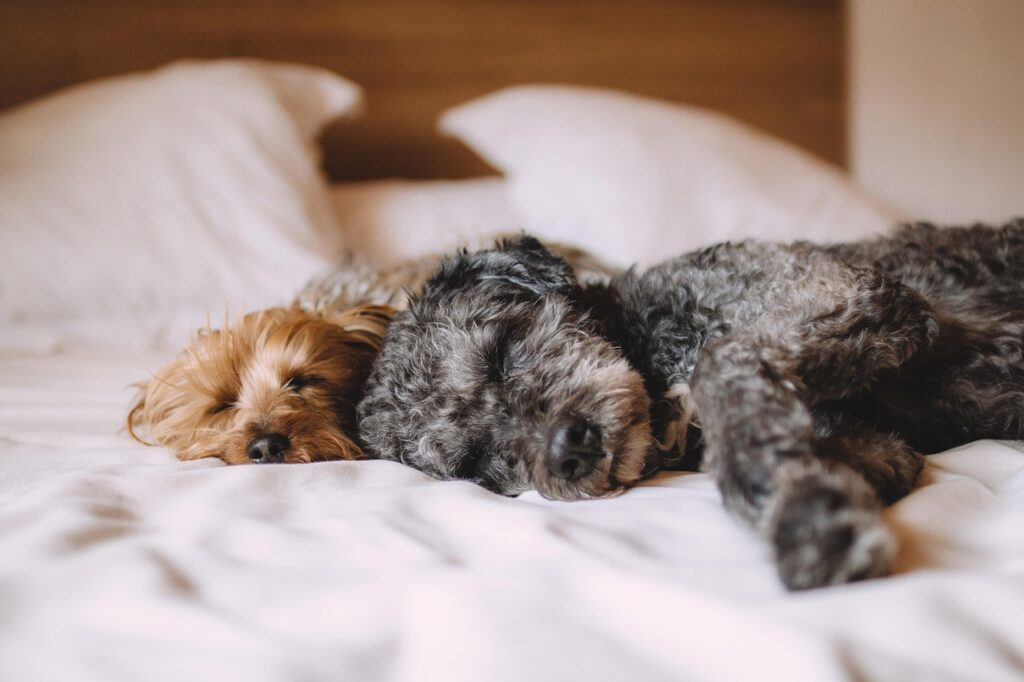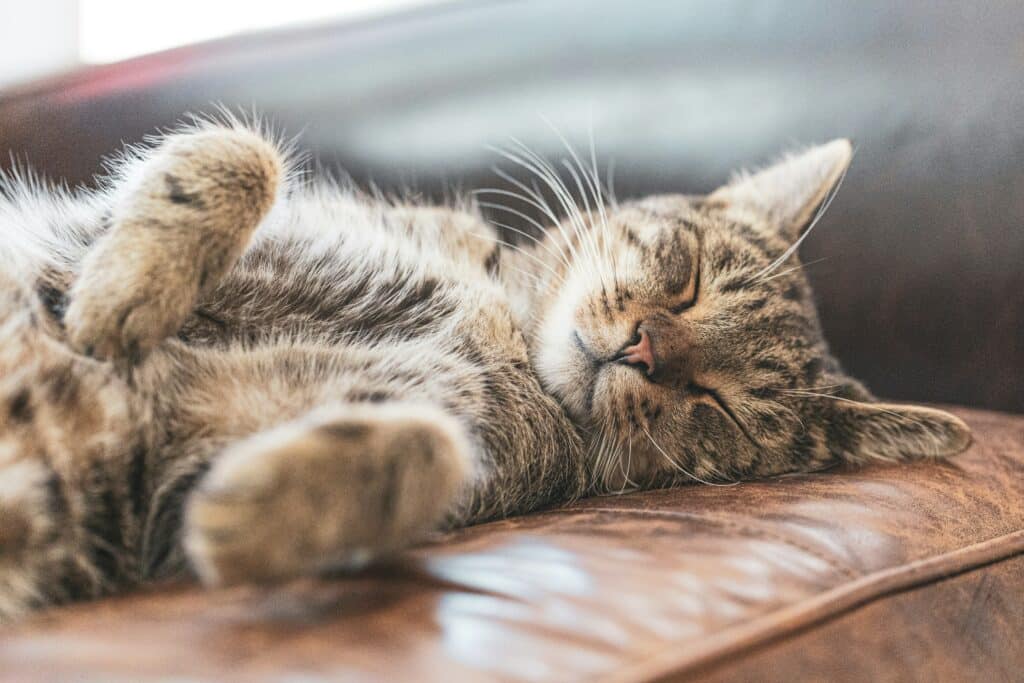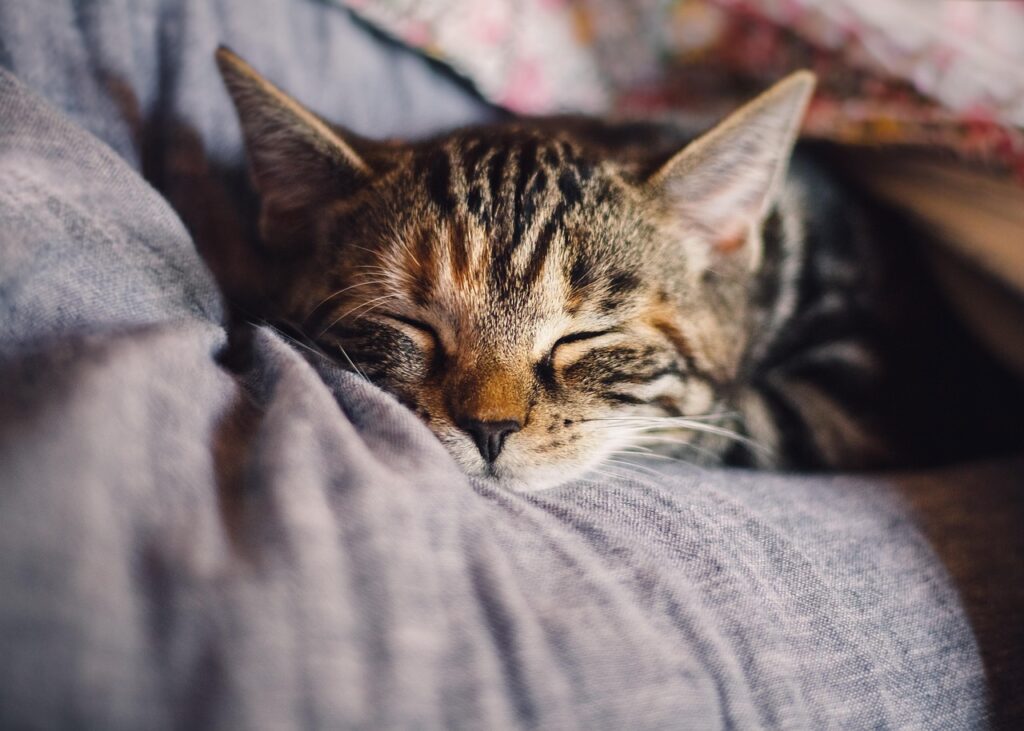
Sleep is a fundamental component of overall health, not just for humans but for our furry companions as well. Understanding pet sleep requirements is crucial for ensuring that dogs and cats lead vibrant, healthy lives. This article delves into the sleep patterns of these beloved animals, highlighting the importance of adequate rest and offering insights into their unique sleeping behaviors.
Understanding Pet Sleep Patterns
Both dogs and cats exhibit sleep patterns that differ significantly from humans. While we typically consolidate our sleep into a single, extended period, pets tend to have more fragmented sleep schedules.
Dogs’ Sleep Habits
Average Sleep Duration: Adult dogs generally sleep between 12 to 14 hours per day.
Polyphasic Sleepers: Unlike humans, dogs are polyphasic sleepers, meaning they sleep multiple times throughout a 24-hour cycle.
Influencing Factors: A dog’s age, breed, size, and activity level can influence their sleep duration.
Cats’ Sleep Habits
Average Sleep Duration: Cats are known for their love of sleep, averaging between 12 to 16 hours daily.
Crepuscular Nature: Cats are crepuscular, meaning they are most active during dawn and dusk, aligning their activity with the times their prey would be active in the wild.
Age Variations: Kittens and senior cats may sleep up to 20 hours a day, reflecting their developmental and energy needs.

Factors Influencing Sleep Requirements
Several factors can affect how much sleep a pet needs:
Age: Puppies and kittens require more sleep—often up to 20 hours daily—to support their rapid growth and development.
Breed and Size: Larger dog breeds may sleep more than smaller breeds due to differences in metabolism and energy expenditure.
Activity Level: Highly active pets may need more rest to recover, while less active pets might sleep out of boredom.
Health Status: Underlying health issues can lead to increased lethargy and sleep.
The Importance of Adequate Sleep
Ensuring that pets receive sufficient sleep is vital for their overall well-being:
Physical Health: Adequate rest supports immune function, aids in recovery, and maintains optimal health.
Behavioral Balance: Well-rested pets are generally more alert and exhibit balanced behaviors.
Emotional Well-being: Proper sleep contributes to a pet’s overall happiness and stress reduction.

Recognizing Sleep Disturbances
It’s essential to monitor your pet’s sleep patterns for any changes that might indicate health concerns:
Excessive Sleepiness: While pets sleep a lot, a sudden increase in sleep duration could signal underlying health issues.
Restlessness: Difficulty settling down or frequent waking may indicate discomfort or anxiety.
Altered Behavior: Changes in sleep can lead to irritability or decreased interest in activities.
Tips to Promote Healthy Sleep
To support your pet’s sleep health:
Establish a Routine: Consistent feeding, play, and sleep times help regulate their internal clocks.
Provide a Comfortable Environment: Ensure they have a quiet, comfortable place to rest, away from disturbances.
Engage in Regular Exercise: Adequate physical activity during the day promotes better sleep at night.
Monitor Diet: Proper nutrition supports overall health, including sleep quality.
Conclusion
Understanding and accommodating your pet’s sleep needs are fundamental aspects of responsible pet ownership. By recognizing the importance of sleep and the factors that influence it, you can help ensure that your dog or cat remains healthy, happy, and well-rested. Always observe your pet’s sleeping habits and consult with a veterinarian if you notice significant changes, as these could be indicators of health issues.
References
Why Do Dogs Sleep So Much? – https://www.petmd.com/dog/general-health/how-many-hours-does-dog-sleep-day
Why Do Cats Sleep So Much? – https://www.petmd.com/cat/behavior/why-do-cats-sleep-so-much?
How Many Hours a Day Should Dogs Sleep? – https://www.rover.com/blog/how-much-sleep-do-dogs-need/
Share this:
- Click to share on WhatsApp (Opens in new window) WhatsApp
- Click to share on Facebook (Opens in new window) Facebook
- Click to share on LinkedIn (Opens in new window) LinkedIn
- Click to share on Pinterest (Opens in new window) Pinterest
- Click to share on Tumblr (Opens in new window) Tumblr
- Click to share on X (Opens in new window) X
- Click to share on Reddit (Opens in new window) Reddit
- Click to share on Telegram (Opens in new window) Telegram
- Click to email a link to a friend (Opens in new window) Email
- Click to print (Opens in new window) Print































